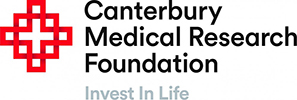Dual relationship challenges for Christchurch Muslims working in professional roles within the community after the March 15 attacks
Aim of the study
Following the March 15 terrorist attacks, many people from the Christchurch Muslim community were employed in response and support roles. Dual relationships can occur when someone is working with an individual or group that they have an existing relationship with. There are negatives and positives in this. The purpose of this study is to gain a better understanding of some of the challenges or positive aspects participants may have encountered and strategies that they used to deal with these relationships. These findings will help to raise awareness of potential issues facing any staff working in similar situations and provide feedback to enable employers to address these.
About the study:
Recruitment commenced in April 2023 and continued until December 2023. A total of 20 people participated, 12 females and 8 males. They were employed in nine different organisations, covering four categories (Government agencies, Research roles, Community support services, and Advisory and Consultancy services).
Data analysis is currently underway and preliminary results will be released soon.
Thank you to everyone who participated in this research study and supported it.

Left to right: Dr S M Akramul Kabir, Ms Fareeha Ali, Dr Ruqayya Sulaiman-Hill, Ms Rana Lotfy Ahmed
Dr Ruqayya Sulaiman-Hill: Principal Investigator
Ruqayya is a Senior Research Fellow in the Department of Psychological Medicine, University of Otago Christchurch. She has a PhD in International Health from Curtin University in Perth, Western Australia and is a co-Principal investigator on the HRC and CMRF-funded March 15 Project: Impacts and Recovery, assessing the psychosocial impacts of the March 15 terrorist attacks on the Christchurch Muslim community. Following the terrorist attack, she played an active role in the Muslim community's response, simultaneously collaborating with the local health authority and other government agencies in advisory and liaison capacities. Her current research concentrates on examining the psychological consequences of traumatic incidents, especially for refugee and migrant populations, as well as exploring the potential of emerging AI technologies within qualitative research methodologies.
Dr S M Akramul Kabir: Research Fellow
S M Akramul Kabir is a Research Fellow in the Department of Psychological Medicine, University of Otago, Christchurch. He received his PhD from the College of Education, Health and Human Development, University of Canterbury in 2020. Soon after the March 15 attacks in 2019, he held interpreting and support roles for the Bangladeshi community to liaise with Canterbury District Health Board, Christchurch Hospital and Police Stations. Following the March 15 Mosque attacks, he was also actively involved for the delivery of Christchurch District Court proceedings. Simultaneously, he has been involved in the longitudinal project--March 15 Project: Impacts and Recovery, at the University of Otago, Christchurch. His current research interests centre around the exploration of AI for methodological innovations, psychological impacts on personal and professional wellbeing and mental health of emergency responders.
Fareeha Ali: Assistant Research Fellow
Fareeha is a trained anthropologist and qualitative researcher with over seven years of experience working on diverse topics related to social issues in various communities. Her expertise lies in understanding and analysing the intricate dynamics within culturally diverse communities. She is passionate about understanding issues related to mental health, especially amongst migrant communities. Fareeha has been working as a research assistant on the March 15 Project: Impacts and Recovery since 2020 and on other related projects as an Assistant Research Fellow at the University of Otago, Christchurch. Since the March 15 attacks in 2019, she has been actively involved as an Urdu Interpreter at Christchurch District Court. She is currently enrolled as a PhD student at the Department of Psychological Medicine, Christchurch.
Rana Lotfy Ahmed: Research Assistant and Booking Coordinator
Rana is a Child and Family trainer currently completing her Master's degree at the University of Canterbury. She has a Bachelor's degree in Psychology from Egypt and has been working at the Department of Psychological Medicine, University of Otago, Christchurch since 2019. Rana worked as a research assistant, booking coordinator and Arabic interpreter for the March 15 Project and she is currently working on other research projects in the Department. Her professional background includes working with autistic children in the UAE, in adult mental health services in Egypt, and more recently as a relief teacher with children in Christchurch.
Contact us
Email march15study@otago.ac.nz
Tel (Reception Phone Number) +64 3 372 6700
This project is proudly supported by CMRF
Read more about the Which hijab am I wearing today? project on the CMRF website
